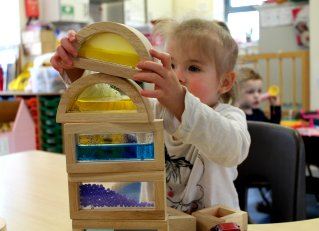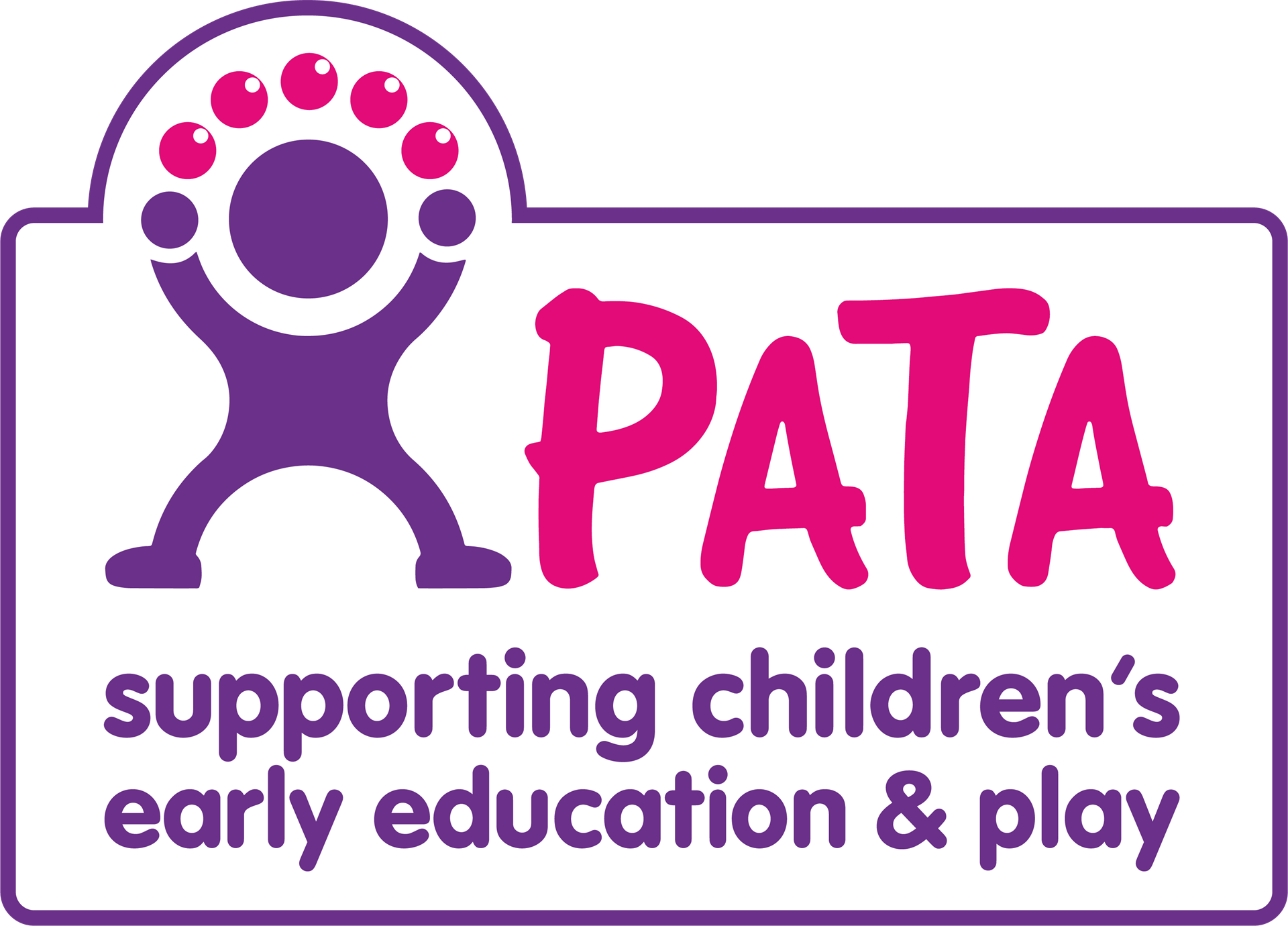DBS: to check or not to check?
This blog post came about after PATA staff members and other member practitioners attended the free SCR (single central record) webinars held by GSCP (Gloucestershire Safeguarding and Children’s Partnership). During the webinar, advice was given that leaders and managers should not be checking staff’s DBS status via the update service other than if there is a specific concern regarding that staff member. Additionally, that in doing so it could be seen as discriminatory practice if you do not have your whole staff team on the update service (and are therefore only checking some, not all, staff).
practitioners attended the free SCR (single central record) webinars held by GSCP (Gloucestershire Safeguarding and Children’s Partnership). During the webinar, advice was given that leaders and managers should not be checking staff’s DBS status via the update service other than if there is a specific concern regarding that staff member. Additionally, that in doing so it could be seen as discriminatory practice if you do not have your whole staff team on the update service (and are therefore only checking some, not all, staff).
PATA’s advice, and practice with our own PMG’s, is that all staff should be on the update service and have their DBS status checked, with their permission, annually as part of their on-going suitability check. This advice therefore surprised us and sparked discussion as to how we proceed, both in terms of advice we give our members, as well as our own PMG procedures.
We sought further clarification from GSCP. Their decision was taken from guidance made by the wider GCC, other local authorities and Ofsted; that settings should have a robust safeguarding culture in place which runs throughout the organisation and includes practices such as safer recruitment, ongoing suitability checks, through to allegations management. They want settings to move away from reliance on DBS checks for assessing suitability as these are only relevant on the day the check is done.
Their advice is that settings should state in their code of conduct/behavior policy that staff must notify the setting of any involvement with the police, and that this, together with a culture of robust safeguarding, where staff feel able to disclose and are given the opportunity to disclose (on going suitability, supervisions etc.) is what is required. They stress that reliance on DBS checks should not replace robust SG procedures alongside safer recruitment knowledge and that the only time we would check the update service or request a new DBS (other than for a new recruit) would be if we had a specific concern about that staff member.
PATA recognise, and have always advocated for, robust SG systems and practice to be in place in settings, and we agree and support the knowledge that practice, policies and procedures should form the majority of your SG culture. However, taking all this into account PATA still feel there is a place, and a need, for an update check annually as part of ongoing suitability. We feel it closes the safeguarding circle – where most is covered by your robust practice, policies and procedures but that an annual check via the update service completes and closes it.
We therefore questioned this further with both LADO and GSCP and have clarified that for our PMG groups we will continue to check all staff via the update service with their permission and backed up by their contracts that state:
Child Protection
Your employment is subject to:
- initial DBS clearance (paid for by PATA)
- initial registration and remaining on the DBS Update Service (paid for by you) for the duration of your employment
- your annual completion of the ‘Ongoing Suitability to Work with Children’ form
- adherence to our Safeguarding Children and Child Protection Policy
This therefore remains our advice to our members: that all staff should be on the update service and have their DBS status checked annually as part of the on-going suitability process and with their permission. However, unless your whole staff team are signed up, you would not do this as it may be considered discriminatory.
We would recommend that your whole staff team are therefore on the update service. In order to do this we suggest a contract change, via consultation with your staff team, to get something like the clause above put into contracts. Your setting would then pay for new DBS checks and your staff team are then responsible to sign up to, and keep signed to, the update service for the duration of their employment with you.
So what should a robust culture of safeguarding actually look like in your setting?
The Early Years Hub posted a short interview on facebook with Julie-Ann Morris, Senior manager in the Early Years Policy Team at Ofsted (https://www.facebook.com/505842819507187/posts/3839697662788336/?sfnsn=scwspwa). The interview explored what is expected from Ofsted when they inspect the safeguarding and child protection elements of the Education Inspection Framework (EIF).
As with GSCP, Ofsted say it is about having a culture of safeguarding in your early years provision. Not just the policies on your shelf, but that staff know the policy contents and have an understanding of how it is applied in practice. In this way the culture of safeguarding becomes embedded throughout the setting.
Julie-Ann Morris talks about three main words in relation to safeguarding and the EIF:
Identify: this is about providers identifying risk and children who may be at risk. Inspectors will undoubtedly get the policy off the shelf to look at but will also speak to staff to check their knowledge of identifying abuse, and that practitioners are not thinking in a rigid way but are able to think outside of unconscious bias.
Ofsted inspectors will use Learning Walks to question about safeguarding practice, ensuring staff are aware of safeguarding and who to go to with concerns. That it is no longer just recognising signs and symptoms of abuse and neglect in children, but going a little bit further now with grooming and exploitation and the methods groomers are using. Within the framework it is about helping providers get out of unconscious bias of exploitation and grooming, that it does not just affect teenagers but can start in children’s early years.
It is also about identifying need for early help. This is important because identifying issues, such as abuse, at an early stage, and getting the vital services on board to support, is so key for children to go on and achieve future success.
Helping: this is about knowing when to help children and when it’s appropriate to engage others. With regards to safeguarding and the EIF this encompasses relationships with children. It is about having quality interactions and key person relationships and knowing your children deeply. Safeguarding culture sits over these relationships and is embedded within your practice because of them. If you know your child you can offer help when it is needed, knowing when to step in and get people to give specialist support where you may not be able to.
Managing: Safeguarding in an early years setting is also about the adults and managing includes allegation of adults who may be presenting a risk to children as well as your safer recruitment process. Inspectors would look at your recruitment processes, ensuring leader and mangers are fully aware of what suitability checks entail and questioning if there is a whole recruitment package in place to ensure adults are suitable to provide care for children. Again, Inspectors will look at your written policies but then check leaders, mangers and staffs knowledge of the whistle blowing process and who they speak to in the event of an allegation against an adult.
So, with regards to safeguarding and the adults in your setting, how to create a space where they feel able to disclose sensitive information about themselves or others and taking into account all the information above what do you need to do to ensure a robust safeguarding culture that does not solely rely on DBS checks?
Create an ethos of openness within your group, by;
- Having a sound recruitment process where a member of the interview panel holds safer recruitment accreditation and your interview questions and criteria are marked in the same way and are non-discriminatory.
- Having clear contracts, job descriptions and staff handbook (if applicable) to ensure new and existing staff are clear with regards to their safeguarding requirements.
- Having a sound induction process that covers safeguarding practices and procedures (with details of how to report abuse/suspected abuse and details of GSCP’s allegation management process).
- Having regular performance management sessions with your staff. This would include staff supervisions where you follow the same format and ask the same questions to all. Within this there should be an open question about whether the staff member has anything to discuss or disclose with regards to safeguarding. This would include disclosure of any police contact. (Failure to disclose police contact, even a speeding ticket, could therefore lead to disciplinary action). These sessions should be friendly as well as professional.
- Staff meetings where time is given to discuss concerns, not just about children, but about any other adults.
- Having an open door policy so that staff know there is always someone available.
- Having a trained safeguarding champion on your committee (if applicable).

